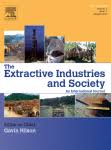Resource information
The narrative of Ethiopia’s remarkable economic growth path under a developmental state model is that of a strong ruling coalition united behind the vision of the late Prime Minister Meles Zenawi. Although a combination of de jure federalism and de facto tight vertical control of power seemed to have contained ethnic fragmentation of the state, internal ethnic tensions that have recently escalated to bloody protests suggest otherwise. This paper explores whether extractive discoveries can lead to inclusive development and conflict transformation under Ethiopia’s political settlement. It considers, in turn, the likely impact any significant new investment in minerals, oil or gas would have on the political settlement. The location of Ethiopia’s mineral endowment and oil exploration is likely to further test the stability of the political settlement. A risk of informal power dynamics shaping the possibilities for extractives-led development exists as much, if not more than, the formal institutions of government. Comparative evidence from a literature review of empirical studies of resource-rich developing countries is used to understand the relationship between extractive industries, political settlements and conflict.


